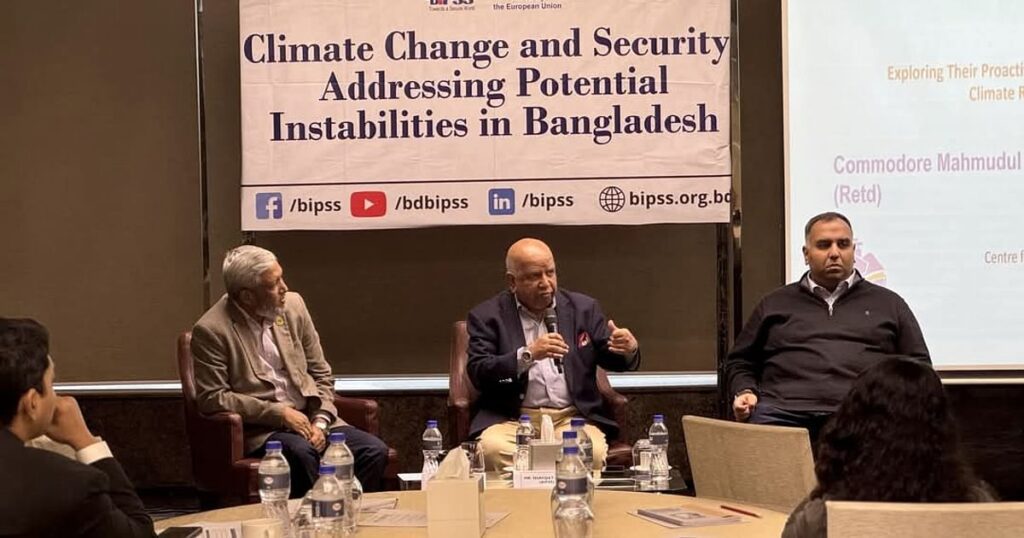The event concluded with a question-and-answer session that emphasised the vital role of the security sector in responding to climate change by contributing to disaster preparedness, resilience building, and sustainability through the efforts of military, police, and intelligence agencies at both national and international levels.
Human-induced climate change has led to unprecedented shifts in global temperatures, sea levels, and extreme weather, as highlighted in the IPCC AR6 report. Key terms like resilience, adaptation, and mitigation were identified as critical to understanding and addressing these challenges.
Proactive measures by the security sector, including climate adaptation and mitigation efforts, were deemed essential for tackling the cascading effects of climate change on resources, health, and infrastructure.
Case studies from the UK and USA exemplified the importance of collaborative approaches to enhance climate resilience and address emerging opportunities and challenges effectively.
The event concluded with closing remarks from Major General ANM Muniruzzaman (Retd), who summarised the key takeaways and outlined future directions for addressing climate-security challenges in Bangladesh.
This workshop highlighted the importance of coordinated action among stakeholders to address climate change vulnerabilities. By bridging research, policy, and practice, it highlighted the need for actionable strategies and international cooperation to build resilience in climate-vulnerable nations like Bangladesh.
The event emphasised the critical role of such forums in fostering informed solutions for a secure and sustainable future.

